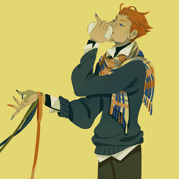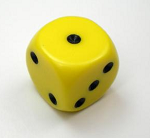|
Aight cool cool it's not everyone's thing I get that My players loved the whole sequence and picked up on everything so everyone's happy 
|
|
|
|

|
| # ? Jun 3, 2024 00:09 |
|
Got an idea for a one shot I may run as a play by post at some point, but has anyone ever used the Louvre as a map before? Just wanted to see if anyone has a resource before I start converting a floor plan into a roll20 file.
|
|
|
|
gently caress thatís brilliant.
|
|
|
|
Subjunctive posted:gently caress thatís brilliant. I'm already running a campaign that started as a spoof of Clue and is an open ended bad guys campaign of heists and robbery, as well as a campaign about an orc/goblin run grocer securing rare ingredients for special dishes in their quest to expand the franchise. I really don't know when or where or who I will be able to play this Louvre one shot with but it doesn't really fit into any of my campaigns.
|
|
|
|
You seem like good people. I ran a fun clue based murder-mystery manor adventure as a guest DM for a friend a few years ago, and am currently starting up a strike game about a fantasy catering company. My advice re:louvre heist is to play it with friends and have everyone play themselves. Ignite Memories fucked around with this message at 23:54 on Feb 10, 2018 |
|
|
|
Ignite Memories posted:You seem like good people. I'm probably just going to build it out at least in concept with the official tour guide floorplan for the time being and then actually fine tune the layout, which stairways are crumbled, etc, once I figure out if it can fit into an existing campaign or if the one-shot is going to be done in a non-5e game. The closest thing to fitting it into my Clue game is using it as the end game for one player's personal story. I gave him a lucky ring that is slowly driving him mad (via out of game messages) and pushing him to sacrifice the rest of the party to become a lich. The plan was for the dungeon to just adapt the Tomb of Horrors, but I could have the ring send him to the Louvre instead. Only problem being that him being the boss makes a LOT more sense at the end of the tomb as opposed to the Louvre being much more open and based on having warring factions trying to survive/scavenge within. e; I say one shot, but what I really mean is a "make a level 11 character that is only for this dungeon that is going to take us like 6 sessions to clear". I also don't like doing play by post or roll20 because I am partial to people actually using dice sets for their characters, and I have a house rule that if you die you forfeit the d20 from that set. No, I'm not a dick about murdering people for the sake of building up that collection. Nephzinho fucked around with this message at 00:28 on Feb 11, 2018 |
|
|
|
That's a uh... very interesting rule. What are your players reactions to that?
|
|
|
|
kazr posted:That's a uh... very interesting rule. What are your players reactions to that? They know ahead of time and are welcome to take dice from the bucket in my office to use. Overall I've found it to help get people invested in their character instead of having ideas about what to play next if they die. It is about as low stakes as things can be.
|
|
|
|
I don't understand, are you saying everyone plays with just a single set of dice? As if they somehow don't all have a mountain of dice dumped out on the table in front of them? lol yeah right
|
|
|
|
|
Bad Munki posted:I don't understand, are you saying everyone plays with just a single set of dice? As if they somehow don't all have a mountain of dice dumped out on the table in front of them? lol yeah right Generally people start with a base set and just add to it as they find which dice they need to roll a bunch of. I have a few dozen sets in a jar that people just draw from as needed. Point is, there is a d20 associated with the character that becomes a tombstone in death.
|
|
|
|
If you have to roll the same d20 more than once in a session, you didnít bring enough dice imo.
|
|
|
|
|
My group has been playing a bit with Lamentations of the Flame Princess characters and none of use would have any dice left if we used that rule. A 3 hp spell caster is usually not long for the world.
|
|
|
|
BadSamaritan posted:My group has been playing a bit with Lamentations of the Flame Princess characters and none of use would have any dice left if we used that rule. A 3 hp spell caster is usually not long for the world. I start campaigns at level 3 (or higher) and will occasionally fudge the dice to stop a lucky crit from one shotting somebody after they walk into a bulette's nest (though they will be crippled and might die while actually fighting it). It is a fun little house rule that ranges from people not really caring and just taking one of my loose dice as their marker to a person who went out of their way to buy a really really nice set to lean into the stakes (this is the player I'm setting up to betray the party).
|
|
|
|
Anyone have tips on how to do the behind the scenes bad guy stuff and have it be impacted by what the party may or may not do?
|
|
|
|
The Slack Lagoon posted:Anyone have tips on how to do the behind the scenes bad guy stuff and have it be impacted by what the party may or may not do? Make a list, baddie 1 wants x and is going to do y, baddie 2 wants, etc. After the party gently caress whatever it is up, look at the list again, and add a 'because of the party, baddie1 is now going to do z.' Make sure the party notice. There's not much more to it than that, they don't need complicated internal lives because the party don't care.
|
|
|
|
sebmojo posted:Make a list, baddie 1 wants x and is going to do y, baddie 2 wants, etc. Yeah, this. To expand on it a little more, they have a goal and a means to achieve that goal. If the players mess with either of those, they adapt the other to match and then you have some throw away line or note where they're all "oh man we were going to do X but the PCs stopped our Y, so now we have to do Z".
|
|
|
|
Okay, two things for my current 5e game's arc: Y'all got any ideas for setpieces in a magic-laboratory type area? It's supposed to be the like, magical research lab from an ancient civilization. I was thinking of covering the staples with the Owlbears, But Worse wing filled with the remains of mismatch monsters, and a library with ~forgotten knowledge~ and ~ancient spells.~ Anything else you'd think would be here? I was also considering a defunct magic item forge with still-lingering magic in it. I just want this stuff to have obvious points of interaction, so my players won't poke their heads in the door and go "nope moving on." Second, set in the same ancient-magical civilization: What kind of gatekeeping/warding would you think the aristocracy would use to separate itself from the lower classes? I wanted to avoid the bog-standard "magical bubble shield." My current line of thought involves gatehouses that only respond to displays of sufficiently high-level magic. Otherwise, the peasants (and, by extension, the player characters) would have to climb over walls or up sheer cliff faces to gain entry.
|
|
|
|
This isn't so much a request for help as me wanting to show off a thing I did and not being able to share with my players. I'm running a game of Feng Shui in which one of the primary antagonists in the 2051 juncture is the Grand Inquisitor, cybernetic Noel Edmonds, and I've recut one of his deranged rants to create this, which will be playing on a building-high TV screen as the players arrive in the future: https://www.youtube.com/watch?v=WYxuuPln3s8
|
|
|
|
Malpais Legate posted:Okay, two things for my current 5e game's arc: Beakers filled with long abandoned experiments, several of which can be oozes. Two identical rooms, one a normal looking library or other "out of place" room for the lab, the other every object is a mimic. Stage it as a mimic training/domesticating experiment. Escher wing. Intelligent lab assistant gargoyle/beholder/something who won't acknowledge the lab's disrepair and welcomes the party and treats them like everything is normal. Gets offended and attacks if they start breaking things or going places off limits. Outright teleportation runes to travel to unseen cities in far away locations or pocket dimensions. Complex locking mechanisms that can only be interacted with with certain spells of a certain level (and you can give the party wands/scrolls of these spells as a "black market entrance"). Nephzinho fucked around with this message at 01:35 on Feb 13, 2018 |
|
|
|
Owl bears covered in tubes full of mysterious potions that do different things. Various skill checks can let players disconnect or inject potions. Some help, some really do not, and they can keep some of the potions after the fight.
|
|
|
|
Whybird posted:This isn't so much a request for help as me wanting to show off a thing I did and not being able to share with my players. Holy poo poo dude, this is glorious. I love Feng Shui I hope your players appreciate it
|
|
|
|
Malpais Legate posted:Okay, two things for my current 5e game's arc: Have a big room with a giant magical crystal in the center a-la Half Life's resonance chamber. It has mirrors all around it that act like blast shields, because otherwise it gives off dangerous and unstable bursts of energy. A half-finished robo-beholder, cobbled together from golem scraps. In another room is a very angry beholder who was used as an anatomical model. A storage wing full of terrible diseases, to be saved in the event that a vaccine might be required. Since the lab has fallen apart, the vials have broken and melded together into a self-aware organism, which now desperately wants to spread into the world. Also for a magical heirarchy make the different sections of the city only accessible via floating discs, or a similar low-level magical power. Make golem gates that discriminate based on the size of the wizards' hats, because buried inside their hats are identification crystals that earn them passage. Make the entire "mage town" an enormous illusion, and the aristocracy actually live in a Hidden City below (or above, on top of illusory clouds) the actual city.
|
|
|
Glukeose posted:Have a big room with a giant magical crystal in the center a-la Half Life's resonance chamber. It has mirrors all around it that act like blast shields, because otherwise it gives off dangerous and unstable bursts of energy. Half-Life has some decent ideas because of how incredibly unsafe Black Mesa is. You could have a chamber where a wizard was testing teleportation magic with wormholes, but hosed up and caused a bunch of portals to appear all over the lab and are now stuck. Each portal has a companion elsewhere that it will always lead to, but you can't tell where it'll go until you enter it.
|
|
|
|
|
chitoryu12 posted:Half-Life has some decent ideas because of how incredibly unsafe Black Mesa is. You could have a chamber where a wizard was testing teleportation magic with wormholes, but hosed up and caused a bunch of portals to appear all over the lab and are now stuck. Each portal has a companion elsewhere that it will always lead to, but you can't tell where it'll go until you enter it. Half life actually sounds like really good adventure fodder. I would love to have a session 1 where I quickly drop them in a complex social workplace environment, introduce them to a cast of NPCs and hint at factions within them, foreshadow social/political conflicts between said factions, and then have something go wrong during a routine procedure and they all mostly all die or turn into horrible monsters or undead or what have you. Occasionally living members might appear briefly. Then they really could puzzle out the conflict between factions but, instead of doing it is part of workplace intrigue, it's to figure out the root cause of the incident and correct the bad effects it had. Jeffrey of YOSPOS fucked around with this message at 16:20 on Feb 13, 2018 |
|
|
Jeffrey of YOSPOS posted:Half life actually sounds like really good adventure fodder. I would love to have a session 1 where I quickly drop them in a complex social workplace environment, introduce them to a cast of NPCs and hint at factions within them, foreshadow social/political conflicts between said factions, and then have something go wrong during a routine procedure and they all mostly all die or turn into horrible monsters or undead or what have you. Occasionally living members might appear briefly. It would be neat to do that, but also have the aftereffects of the political and social relationships be visible during the chaos. Like one locked room has two monsters in it, and when you examine them to find out who they were you discover that they were the star-crossed lovers of warring families who had hidden away for their tryst when it all went down. Or you encounter someone who claimed to have killed another person when they became a zombie, but closer inspection reveals that the body is actually done up with hasty makeup and gore (plus some mutilation to further disguise it) and he actually took advantage of the incident to murder a rival and steal the combination to his vault to skip out with the inheritance.
|
|
|
|
|
Hey friends, I'm getting my head in a bit of a knot over this one, maybe someone can offer some advice to help me out. TLDR at the bottom When I run a campaign, it's gonna be fast, high action, heavy hitting, a bit silly/funny and the PCs are gonna be awesome. That's the way I run games when I sit down at the table and let it go naturally. I have fun and the players love it too My "problem" is, I've been trying to run a more "serious" game for a few years now and I can never pull it off. Every time I've started a campaign with the idea of it having a more serious tone, I'll find myself panicking and scrambling at the table for on the spot questions or results of rolls and revert back to my "safe place" of fun, high action with anything that matters tending to come out of it with nothing more than some bumps and scrapes (IE there's never any cost to their actions). Which quickly causes the land side back into "guess this is a Marvel film now" I'm not saying I want to run a meat grinder, I want to run a game where the players actually sit and think about what they want to do, actually put dilemmas in front of them where they go "poo poo, what would my character do?" and those choices have repercussions which effect the story All this said, I've had success with what I've wanted before in one shots. I ran a space station horror one shot where I killed the lights IRL, flooded the room with red light from an LED bar and gave them torches to read their character sheets... Then had one player in the group of 6 be a changeling who had to kill all the PCs by winking at them That went really well, but the effort and time invested in getting that setting right was a lot of work. Plus there was a lot going on to keep the party engaged. I think I would really struggle to keep that up in a campaign So basically what can I try to do in order to stop using humor and cartoon action as a crutch? Also, I'm still gonna run my normal stuff, I'd just like to run something different for one run every so often as a break from the same old. Everyone likes my "usual" games, me included TLDR; I run my campaigns like super hero films and they are fun, but I suck at running more serious games with depth, which I'd like to occasionally do. Any advice?[/b]
|
|
|
|
So my three big suggestions are: Try running some one shot games in systems that encourage heavier subjects or more serious/dramatic play. The Mountain Witch comes to mind, and Dread can certainly pull it off. I'm blanking on some other suggestions at the moment. In any case, like any skill drama takes practice. Give yourself some opportunities to practice (and even mess up) in lower pressure non-continuing campaigns and in systems that explicitly put the tools in your hands for that. That will make it easier to pull off when the system is more neutral about its tone. Try participating in a more dramatic/serious game as a player. A lot of the skills you'll build are transferable to the GM side, and you aren't also trying to handle the load of GM duties at the same time. That sort of flows into suggestion three - try playing with a different group, either as a player or a GM. Sometimes getting a different set of faces at the table can change the dynamic, plus you have fewer built in expectations to fight against. As with suggestion one, it's partly a way to practice with less pressure and will give you a better grounding to try the same with your more typical group(s). Also, if the group you're GMing for is one that's used to more serious/dramatic tone, you can offload more of that tone-setting on them when you find yourself getting stuck. Also, if your players are also struggling with maintaining tone, the same basic suggestions can help them too. EDIT: Edit is not quote, holy crap. Comrade Gorbash fucked around with this message at 17:58 on Feb 15, 2018 |
|
|
|
kaffo posted:TLDR; I run my campaigns like super hero films and they are fun, but I suck at running more serious games with depth, which I'd like to occasionally do. Any advice? And by "mean," I mean present the players with consequences to their actions (or inactions) that are a) unpleasant and b) irrevocable. And always keep an eye out for good "unintended consequences," as these too can be used to set the tone. Figure out what motivates the PCs and hit them where it hurts - do they like a particular NPC? Great, now you have a perfect candidate for collateral damage. Another important bit is in how you narrate stuff. Your default now is to reach for humor. Instead try reaching for blood. For instance, when you describe the results of a PC's attack that knocks an opponent prone, don't describe a pratfall, describe a hamstringing or a shattered kneecap. Have NPCs who don't crack jokes. The first time they run across someone who's dour and as serious as a loving heart-attack, that will go a long way to setting the tone. Finally, subject matter matters. In order to have a serious game with serious depth, the subject matter of the game has to be serious. Running around generically killing bosses and taking their stuff is pretty much subliminally recognized by most players as fluff, and they will treat it with an according lack of seriousness. So switch up your game - don't run them through "Agents of S.H.I.E.L.D.," run them through "The Walking Dead." Make the central themes of the game about serious matters and don't shy away from the ramifications of those themes. So if the Necromancer is gaining power and has started a war of conquest, put the players in situations where they encounter the misery and hopelessness of survivors and refugees. Play up the political back-stabbing and infighting of the factions that can't get their act together to unify and oppose the Necromancer, and the effect that those delays have on the people in the path of his advance. Or if you're doing something Cthulhu-esque, play up the bizarre, horrific poo poo that people do in the name of whatever Outer God they are hoping (presumably in vain) to appease.
|
|
|
|
Comrade Gorbash posted:The Mountain Witch comes to mind, and Dread can certainly pull it off. I'm blanking on some other suggestions at the moment. Polaris (the one by Ben Lehman) Don't Rest Your Head Reflections Ten Candles (As it says on the tin, you do actually need ten candles) Nights Black Agents These definitely fit but require the GM to be pretty dialed in to work, so I wouldn't start with them. The Watch Bluebeard's Bride Grey Ranks I would suggest Night Witches but I've never gotten it to run smoothly at the table, maybe you'll have better luck. These two aren't so much automatically serious, but as games about romance and love they are still useful for practicing very different tones/themes from your typical dungeon crawl Kagematsu Shooting the Moon
|
|
|
|
Ten Candles is excellent for practicing a serious game and getting players on board with the tone. Itís very ominous, and even when our group joked around it was very nervous laughter. The candle setup contributed a lot and kept us focused on the tone. I also struggle with keeping a serious tone with the games I lead, and usually reserve v. serious stuff for 1-3 session games. It might also be good to talk to your group and see if they are interested in a long-term Ďseriousí game. A lot of people just want a light-hearted/awesome tone to blow off steam on the weekend, and before embarking on a longer game it would help to check that everyone is on board for it. Having one player trying to bring it back to funnytown will make it very difficult for you.
|
|
|
|
I would add that it's A-OK for a campaign to have serious subject matter and comic relief. The example I like to go to is Buffy and similar serials, which had stone-cold serious drama and completely wacky escapades right up until the end. The approach that always worked for me was to think about the tone and speed of your voice. When you are switching to a more dramatic mood, use a slower, more measured delivery. Don't be afraid to pace yourself, take pauses between sentences, and use the kind of tone of voice you'd use irl for informing someone of bad news. The other thing that is vital is to always ensure that actions have consequences. Even the wacky actions have consequences. If the players cause traditional PC chaos and burn down a tavern as a diversion, that tavern is still burned down. The inkeeper is begging for support. People are wondering who did it and who to blame.
|
|
|
|
World-building question: any recommendations for tracking lore and such that is generated over the course of a game? My usual go-to would just be a composition book to jot stuff down in, but inevitably it ends up a bunch of random, unorganized notes, half inscrutable without context, and the other half looking some some journal from a Myst game, which is cool and all, but less useful. Looking for a more graceful, thought out solution, with a little bit of self-curating.
|
|
|
|
|
Bad Munki posted:World-building question: any recommendations for tracking lore and such that is generated over the course of a game? My usual go-to would just be a composition book to jot stuff down in, but inevitably it ends up a bunch of random, unorganized notes, half inscrutable without context, and the other half looking some some journal from a Myst game, which is cool and all, but less useful. Looking for a more graceful, thought out solution, with a little bit of self-curating. I game with IT nerds, so we Wiki-fy everything.
|
|
|
|
Run a wiki on your local machine for free, or toss it on a webhost if you want someone else to see it.
|
|
|
|
I just use Evernote notebooks for each campaign. (yes i know the program largely went to poo poo)
|
|
|
|
Ilor posted:I know you've asked this question before, and the advice I gave back then still applies: don't get funny, get mean. Oh poo poo, did I? It has been bothering me for a long time. Sorry to make you repeat yourself! Thank you all for the advice, I'll copy it out into a notepad file or something tomorrow so I can reflect on it You guys are the best 
|
|
|
|
Bad Munki posted:World-building question: any recommendations for tracking lore and such that is generated over the course of a game? My usual go-to would just be a composition book to jot stuff down in, but inevitably it ends up a bunch of random, unorganized notes, half inscrutable without context, and the other half looking some some journal from a Myst game, which is cool and all, but less useful. Looking for a more graceful, thought out solution, with a little bit of self-curating. I have a facebook page where I update questlogs for my two SotDL groups, and a google doc of my setting that my players will ocassionally reference for geographic / cultural info. Google classroom is a useful tool also. Almost everyone has a gmail account so it makes updating and inviting people extremely easy.
|
|
|
|
Bad Munki posted:World-building question: any recommendations for tracking lore and such that is generated over the course of a game? My usual go-to would just be a composition book to jot stuff down in, but inevitably it ends up a bunch of random, unorganized notes, half inscrutable without context, and the other half looking some some journal from a Myst game, which is cool and all, but less useful. Looking for a more graceful, thought out solution, with a little bit of self-curating. I use a symbol map. I can't recall what they're actually called. I use hexagons for big quest hubs and major cities, squares for towns/small places that trade coin and dots for little villages and curiosities. It works on relative distance "War Camp is between City and Dungeon" rather than trying to draw a fake Tolkienien map. Then as stuff happens in a location I add the name/bullet point to the relevant symbols. It helps me DM with the location in mind without trying to find my markers in intricate mountain textures or whatever.
|
|
|
|
I struggle most with travel time. It's the only reason I'm grateful one of my players picked a class with long-distance teleportation, because otherwise I was just making poo poo up about road length.
|
|
|
|

|
| # ? Jun 3, 2024 00:09 |
|
On the mapping note, our upcoming game is going to be high fantasy & high seas, should be fun. The general world is going to be a sort of endless archipelago setting, which lets me run it basically as a plane hopping campaign, but a little less crazy and hopefully easier to manage. I have this notion of letting the map be designed through discovery and exploration, mapping out very little ahead of schedule. Iíll also give each player a couple locations that only they know about, and are considered to be anywhere on the map, right up until they decide to declare where it is. Caster knows of a secret wizard school hidden in the open ocean? Once he decides to go there, he can place it. Ranger has a secret hideaway? Same thing. I also have a secret reality-augmented puzzle, but thatís a post for later tonight...SUPER jazzed about that.
|
|
|
|






































